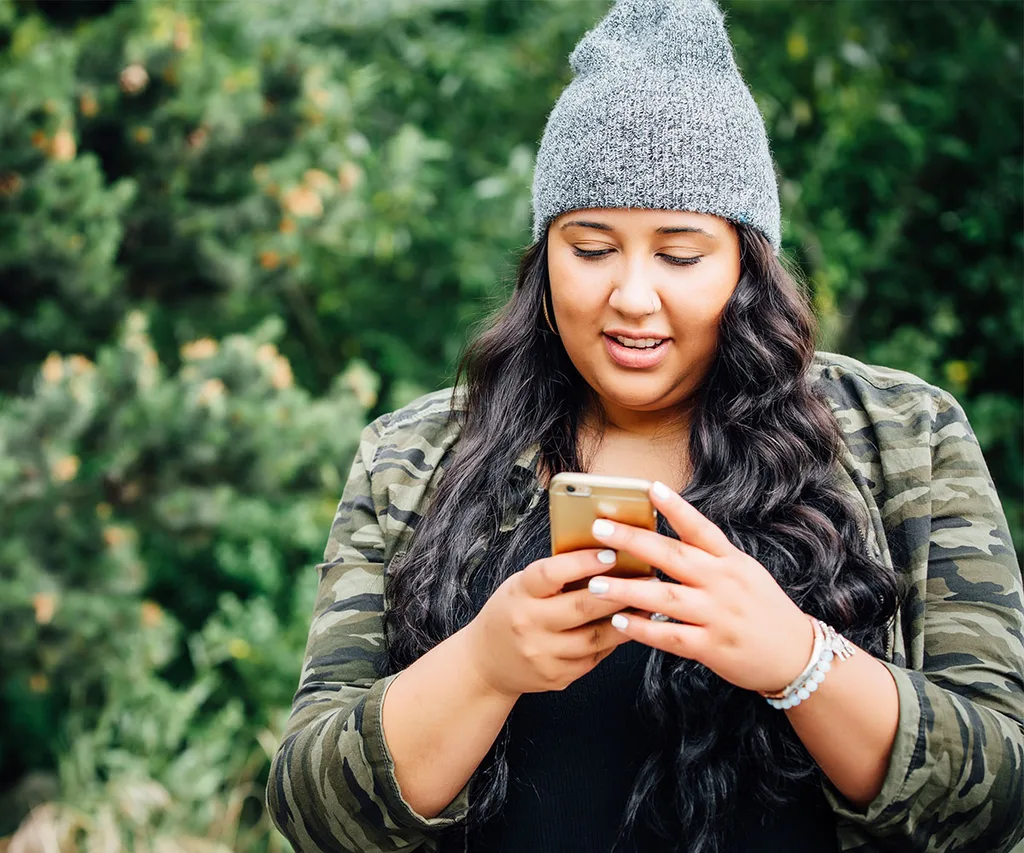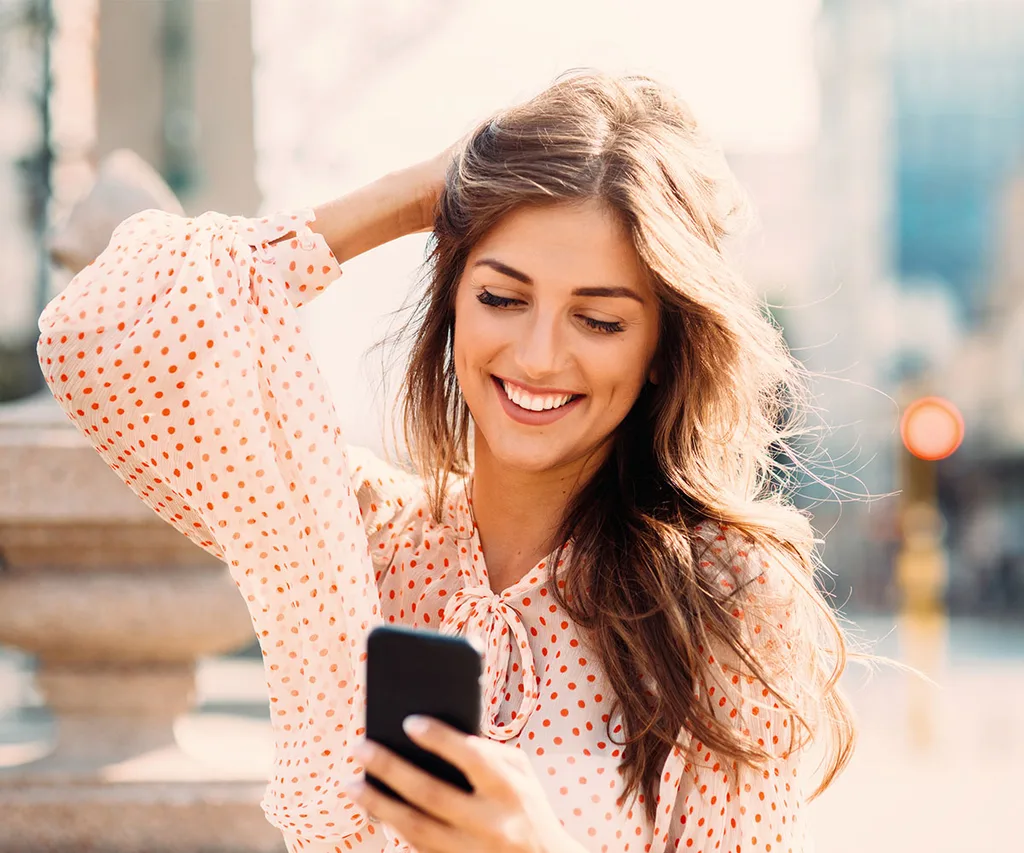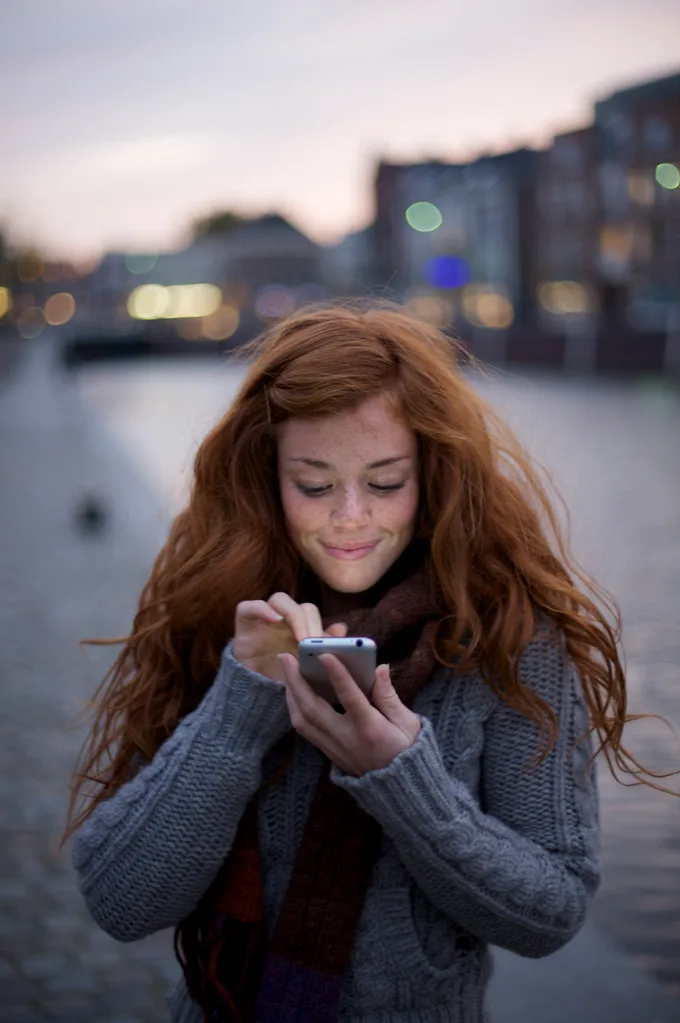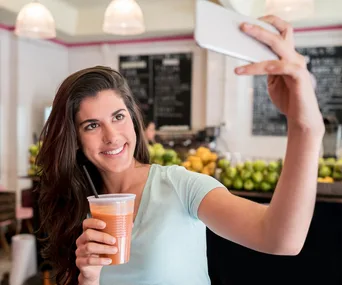This year I decided to make a real, conscious effort to cut back my time spent on social media, not just because it’s reportedly better for our mental health, but so I would spend more time in the present moment.
I wanted to notice things around me; like the sun setting on the water as I caught the bus over the Auckland Harbour Bridge. I wanted to sit on my porch and notice the sun on my skin when drinking my morning coffee and I wanted to notice the sound the birds make outside my window each morning. I decided to be more appreciative of the little wonders of the world that we take for granted.
Of course, you don’t need to cut back on social media to be more mindful and present throughout your day, but it certainly helps.
Deciding to reduce my time spent on social media was brought on by other reasons as well. One day I started noticing how obsessed society seems to be with their phones.
Colleagues would bring their phones to meetings and place them on the table in front of them (why? If you’re in a meeting, be present! It’s just poor manners to be on your phone – it screams ‘I’d rather be elsewhere’). On my daily lunchtime walks around the park I noticed people sitting at benches on their phones, walking and texting or walking and talking on the phone… no matter where I looked I could see people attached to their phones.
“If aliens exist, they must think we need our phones for sustenance or life support or we’ll die,” I started saying to my partner one day. “If aliens came to earth and saw how we treat our phones, they’d think we need them – no one goes anywhere without their phone these days.”
As silly as the above conservation sounds, it was truly how I felt. I was horrified at how attached people had become to their phones – and for what? Why are we so obsessed with these little devices?

How I cut back on social media
Research suggests our mood is improved when we spend time in nature, bond with our friends and exercise (especially in natural light), but does anyone do this anymore without taking a picture ‘for the ‘gram’?
I decided I would scale back my social media and phone usage because I didn’t want to live a virtual life anymore, and I certainly didn’t want to be the person taking photos of their breakfast at a café (well, unless it’s a really, really good one.)
Earlier this year I finally quit Instagram – for good. I have no problem with the app, but for me personally, it was too addictive. When I had an account I’d find myself scrolling in either half hour chunks on the way home from work on the bus (instead of reading, planning a holiday or simply looking out the window) or for quick hits when I was bored. I didn’t know how to sit still. If my partner and I were watching a movie or TV show and he needed a bathroom break, I’d check Instagram while I waited. I was never really in the moment.
And while it never really took over my life (I didn’t get caught up on likes, getting great shots for content or how many followers I had), I still thought my time could be better spent. The app wasn’t really adding anything meaningful to my life. It didn’t bring me closer to friends and family, and this was a goal for me. I was worried I’d miss the app as it provided fitness and healthy eating inspiration, not to mention I could follow what my favourite celebrities were up to, but I realised this was a classic case of FOMO, and I wasn’t actually missing out on anything by switching off.
Why did I need to know what celebrities were up to? What was this adding to my life? Why can’t I motivate myself to exercise without the lure of flashy abs?
It took three times to make it stick but I quit Instagram and I’m never going back. These days I don’t take flat lay pictures of food before I eat it, I don’t take a ‘cheers’ boomerang before drinking, I don’t take pictures of myself before a night out and I don’t know what B-list influencers are up to on the internet, and it’s liberating as anything.
Quitting Facebook, however, was another story.
I’m an Australian living in New Zealand, so for me Facebook is a great way to keep in contact with friends and family. However, mindlessly scrolling Facebook was still an issue for me, so I deleted the app off my phone (but kept messenger) and decided to only check the site on my laptop or computer. This was quite tricky for me. I found I missed out on a lot of news this way as I had made sure to ‘see first’ news sites like BBC and CNN in my news feed. So any breaking news or otherwise was lost on me. But I did cut down my usage time considerably.
After the Facebook privacy breach, I became concerned with what I was sharing on the social media site. I wasn’t a regular poster, but I became very aware that anyone on my friends list had access to any information I disclosed. So I cut down my friends list quite ruthlessly, and to be honest I was maybe a little too harsh.
I ended up cutting my friends list from 200 to around 90. How did I choose who to cull? I set a test: When thinking of a Facebook friend I asked myself ‘would I go up to this person in a mall and say hello?’ If the answer was no, then I’d delete them. I didn’t mean this in a spiteful or malicious way, I just decided to stop collecting acquaintances on Facebook that I wasn’t close with.
So the people I went on a holiday tour with three years ago and we haven’t spoken since? Unfriended. Colleagues from five years ago that I don’t know anymore? Unfriended. I stopped getting hung up on offending people (they probably wouldn’t notice we were no longer virtual friends anyway) and stopped caring whether I missed engagement and baby announcements. Honestly, these were exciting announcements I used to look out for, but I realised I didn’t need to know what Cass from intermediate was up to. I didn’t need to know what any ex-boyfriends were doing on the weekend. And I didn’t need to know what my university public relations class pal was doing these days. I just stopped being nosy about what people were doing.
But this still didn’t feel like enough for me, I wanted to overhaul my phone habits completely.
So I changed my phone screen settings to ‘greyscale’, meaning the colour was gone from my phone (this apparently makes it less addictive). I left my phone in my bag for the evening when I got home from work and stopped topping up my phone so I could only use wifi when at home or at work, any other time I would not have access to the internet.
I just wanted to live as ‘naturally’ as possible. And this worked for me for a while.

How new phone habits made me feel
If I could describe in one word how all these changes made me feel, I’d say refreshed. I feel happier, free and definitely more at peace with where I am in life and what I’m doing.
I don’t compare my looks, relationships or social life to anyone anymore. I am just enjoying my journey.
I appreciate how wonderful it is to be alive and enjoy all the beauty this world has to offer, without needing to document it. I simply am.
When I started my digital detox I was worried I would isolate myself and lose contact with friends but that’s not the case at all. I found I didn’t lose meaningful interactions by quitting Instagram or not spending much time on Facebook, in fact, my relationships have improved.
However some aspects of my digital detox didn’t work for me. I have started topping up my phone again as my partner and I would have trouble communicating (“You didn’t pick up any milk on the way home?” “I didn’t get your message, sorry…”) and I found it difficult to find places in Auckland without Google Maps. Plus, in an emergency it would be great to have credit to call for help.
So while reducing my time on social media helped me mentally, and I’m a lot happier for it, for practicality reasons I have started topping up again.

My next steps
I really love the way I feel right now, and I think not being glued to my phone is a big part of that, so my goals for next year will be to tackle another screen obsession: TV!
I’m an avid Netflix fan but know that sitting down all day and then coming home to eat dinner in front of the tele isn’t exactly good for me. So I’ll be cutting down on TV-watching and will replace that time with reading or going for a walk with my partner.
I am also going on a fairly lengthy holiday next year, and one of my goals for that holiday is to be as present and mindful as possible – no posting gratuitous holiday posts on Facebook, no excessive photo-taking and definitely no doing things simply for a photograph (i.e spending half an hour at an attraction to get ‘the perfect shot’ for social media.
I will immerse myself in the culture of each new place, read their newspapers, try their cuisine and write about it in a travel diary. And keep those precious memories for myself, because some moments are more special when they’re private.



